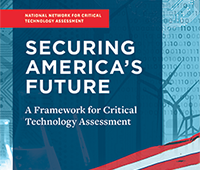Every day, tons of food lands on the garbage heap. In some cases, fresh produce is binned simply because it does not look good. One group of consumers were fed up with this waste and decided to found a company that uses left-over food to make jams and chutney. And there are many other examples, including the first car-sharing organizations and sustainable textile enterprises.
“These people aren’t looking to politicians or NGOs to solve social and ecological problems. They want to do something themselves and see business as an effective tool for solving these problems,” explains Prof. Frank-Martin Belz, Chair of Corporate Sustainability at the Technical Univ. of Munich (TUM). “Others simply recognize the ever-rising demand for sustainable lifestyle choices and make a conscious move to fill a market gap while they can.”
Established companies are also keen to benefit from consumer’s ideas on sustainable living. Many organizations develop open innovation processes that engage end users in the development of new products. This can be anything from a food and drinks company organizing a brainstorming competition to a car manufacturer joining online communities to discuss new ideas for electric cars. “Consumers are not just product users. Many also have a great deal of technical know-how,” says Belz.
Using 3-D printers to create prototypes at home
New technologies such as 3-D printers could open up even more opportunities for individuals to design products on their own or in collaboration with companies. “Soon, anyone will be able to make a prototype at home,” explains Belz. “We believe there is a huge creative and entrepreneurial potential here that could feed into the development of a sustainable economy.”
Yet it seems that no one really knows how to systematically leverage this potential. The “Sustainable Lifestyles 2.0: End User Integration, Innovation and Entrepreneurship (EU-InnovatE)” project aims to change this. Around 40 scientists at 14 European research institutes are involved in this large-scale, EU-funded project. By carrying out case studies as well as surveys and by evaluating databases, the researchers want to find out more about this trend. They will be focusing their activities on more than 50 companies in 15 European countries, primarily in the food and drinks industry and the construction / residential, mobility and energy sectors.
The plan is to analyze start-ups offering sustainable products and services. What motivated the founders? How did they transition an idea to a start-up? How are they financed? What factors are conducive to their market success?
Is politics hampering innovation?
In addition, the researchers will be exploring end user integration in medium-sized and large companies. What consumers are companies engaging with and why? What tools and questions are they using? How are these companies organizing and financing the underlying processes? What are the make-or-break factors?
The project brings together economists and sociologists as well as political scientists, historians and philosophers. They will be investigating how national and EU politics promote and / or hinder socially and ecologically motivated start-ups. They will also be looking at the role that consumers have played over the past one hundred years.
And like the companies they are analyzing, the scientists also want to involve end users in the project. They will be holding a series of workshops to pass on their findings to business-minded consumers and companies.
“Sustainable Lifestyles 2.0: End User Integration, Innovation and Entrepreneurship (EU-InnovatE)”:
The project will receive EUR 4.7 million in funding from the socio-economic sciences and humanities division of the EU’s Framework Programmes for Research and Technological Development from 2014 to 2016. It will be coordinated by the Chair of Corporate Sustainability – Brewery and Food Industry (Prof. Frank-Martin Belz) at TUM. The TUM Chairs of Research and Science Management (Prof. Claudia Peus), Strategy and Organization (Prof. Isabell Welpe) and Corporate Management (Prof. Alwine Mohnen) are also participating in the project.
Further partners include Aalto-Korkeakoulusaatio, Aarhus Universitet, Akademia Leona Kozminskiego, Copenhagen Business School, Cranfield University, EABIS – The Academy of Business in Society, Forum for the Future, Katholische Universität Eichstätt-Ingolstadt, Politecnico di Milano, Technische Universiteit Eindhoven, Universidad de Navarra, Università Cattolica del Sacro Cuore, and Universiteit van Amsterdam.
Source: Munich Technical Univ.




